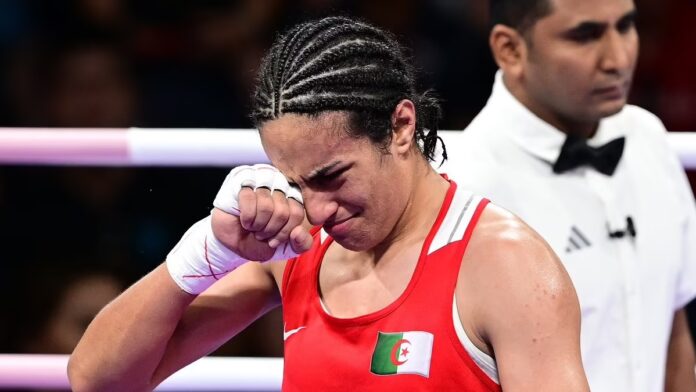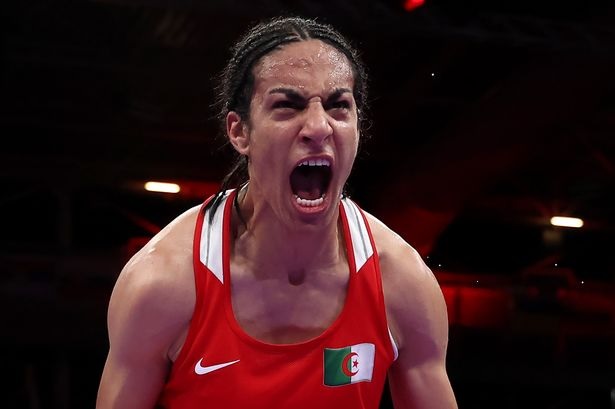Khelif’s emotional outburst resonated with many watching the fight, not just for the win itself, but for the weight it carried.
The Algerian boxer has been thrust into the center of a fierce debate about gender verification in women’s sports.
In 2023, she was disqualified from the World Championships, along with Taiwanese boxer Lin Yu-ting, after failing a sex chromosome test.
This incident sparked outrage and ignited discussions about fairness, inclusion, and the very definition of womanhood in sports.
Khelif’s tearful reaction after her Olympic victory seemed to express the immense pressure and scrutiny she has faced throughout her career.
The details surrounding Khelif’s disqualification remain confidential due to privacy concerns. However, the incident highlighted the complexities of gender testing in sports.
Determining eligibility based on chromosomes opens a Pandora’s box of questions. Should athletes be categorized solely based on biology, or should there be room for a more nuanced understanding of gender identity?
The debate extends far beyond individual cases. It raises concerns about the potential for discrimination against athletes with naturally occurring variations in their chromosomes.
Khelif’s Olympic journey transcends the pursuit of a gold medal. Her participation is a powerful statement about resilience and the fight for inclusion. Her tears spoke volumes about the emotional toll of navigating controversy while striving to achieve her athletic dreams.
The path forward requires a delicate balance between ensuring fairness in competition and creating a space where all athletes feel welcome and respected.
The International Olympic Committee (IOC) is currently reviewing its policies on gender testing in sports. The outcome of this review will have a significant impact on athletes like Khelif and the future of women’s sports.
Khelif’s emotional victory serves as a powerful reminder of the human element at stake in these complex debates. As she progresses towards the semi-finals, the sporting world awaits with bated breath, not just for the outcome of her next fight, but for the potential impact her journey could have on the future of women’s athletics.
















